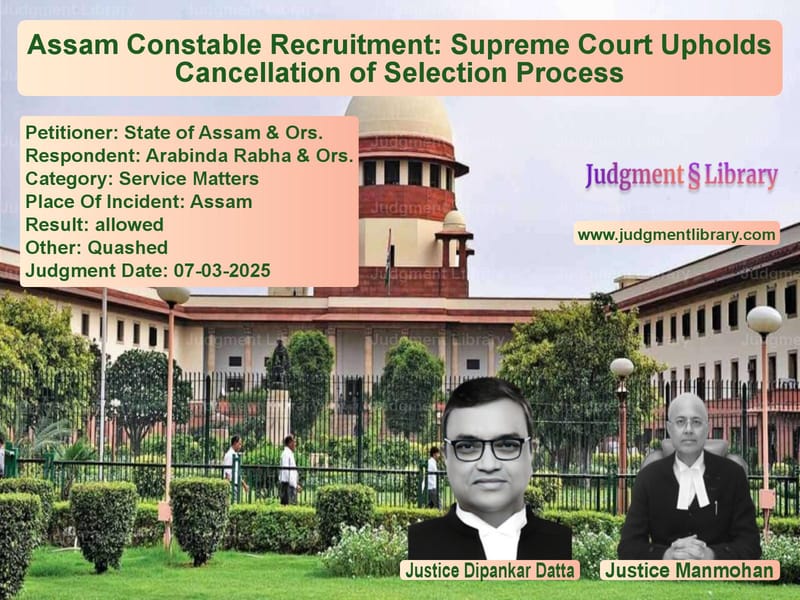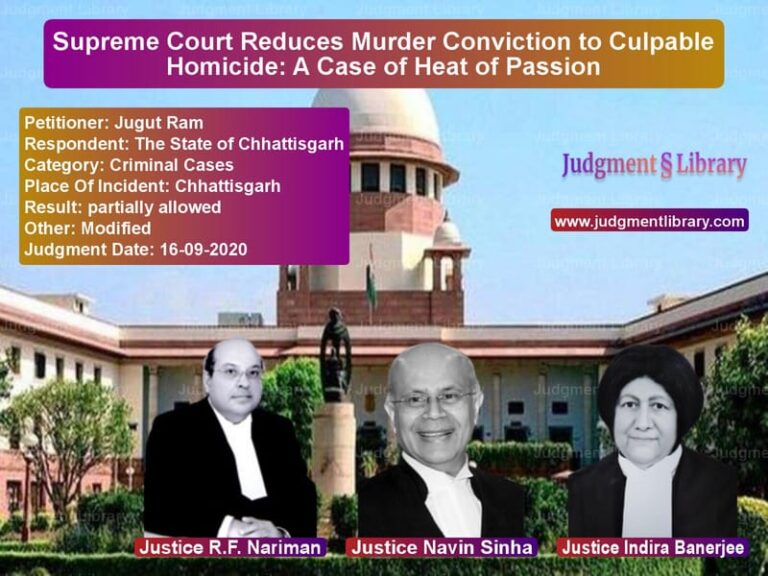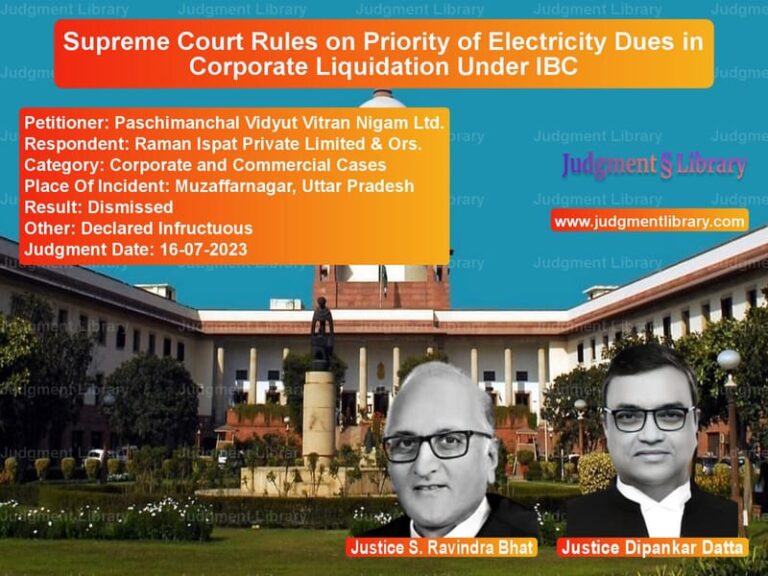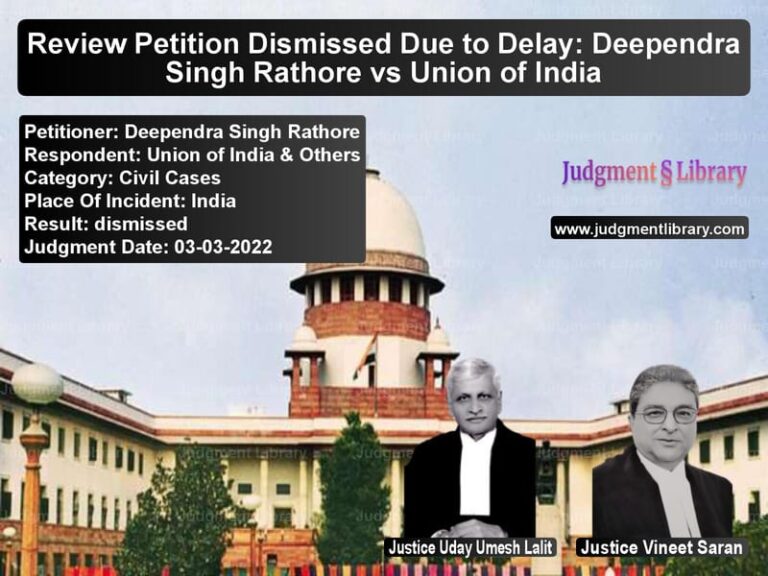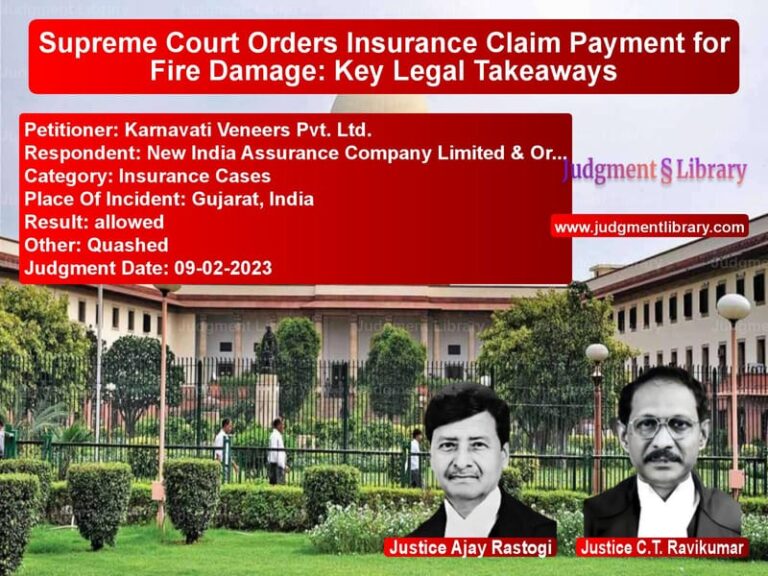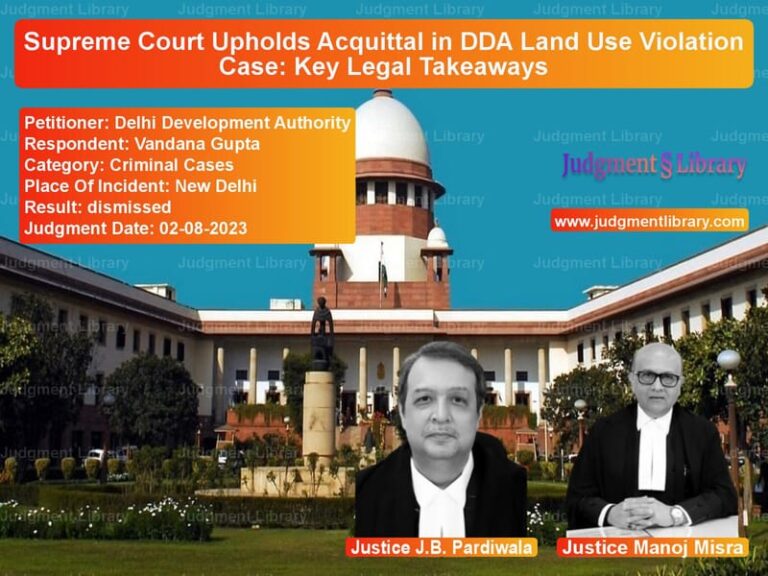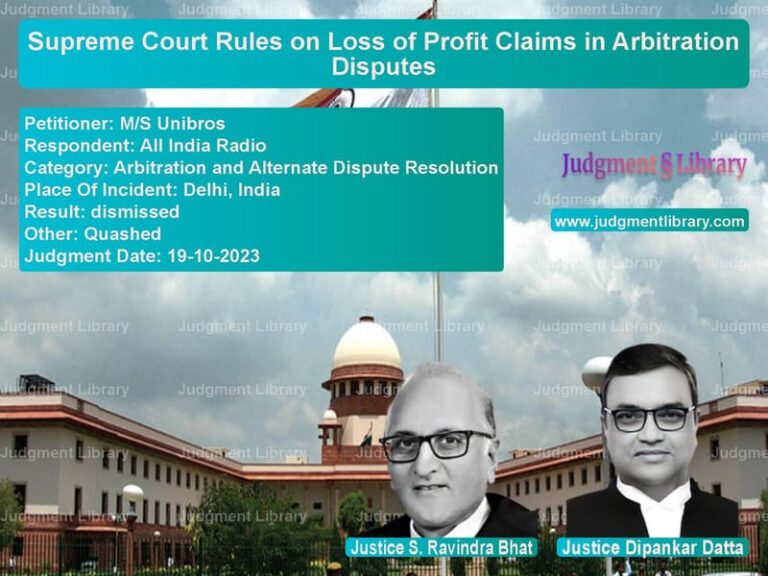Assam Constable Recruitment: Supreme Court Upholds Cancellation of Selection Process
The Supreme Court of India recently ruled in favor of the State of Assam in State of Assam & Ors. v. Arabinda Rabha & Ors., upholding the cancellation of the selection process for 104 posts of Constables in the Assam Forest Protection Force (AFPF). The ruling emphasizes the importance of procedural fairness in public employment and reinforces the state’s authority to cancel a flawed selection process.
Background of the Case
The case arose from a recruitment process initiated on July 23, 2014, by the office of the Principal Chief Conservator of Forest & Head of Forest Force (PCCF), Assam, to fill 104 vacancies in AFPF. The selection process included a physical efficiency test (PET) and an interview.
Following a change in the political administration in May 2016, the new government reviewed the recruitment process. The PCCF raised concerns about procedural irregularities, leading to the cancellation of the select list by an order dated July 18, 2016. The cancellation was publicly announced in a newspaper notice on August 17, 2016.
Key Issues in the Case
- The respondents (candidates who had qualified) argued that their selection was canceled arbitrarily and without proper inquiry.
- The state justified the cancellation by citing violations of the reservation policy and concerns over favoritism and procedural irregularities.
- The candidates challenged the cancellation before the Gauhati High Court, which ruled in their favor, directing the state to rectify the process rather than cancel it entirely.
- The State of Assam appealed the decision in the Supreme Court, asserting its right to cancel the selection process due to serious irregularities.
Arguments by the Parties
State of Assam’s Arguments
- The government had the authority to cancel the selection process in the interest of fairness and transparency.
- The selection process was deeply flawed, as revealed by the PCCF’s report, which highlighted irregularities such as:
- Out of 104 selected candidates, 64 were from only two districts (Kamrup Metro and Kamrup Rural), while 16 districts had no representation.
- The reservation policy was not properly implemented, leading to an unfair selection process.
- Candidates who should not have qualified were included in the select list.
- The process lacked a written examination and was solely based on an interview, which left room for bias.
- The government was justified in canceling the selection to maintain the integrity of public employment.
- Relying on Shankarsan Dash v. Union of India, the state argued that selection does not confer an absolute right to appointment.
Respondents’ Arguments
- The cancellation was arbitrary, as no formal inquiry was conducted to verify the alleged irregularities.
- The government’s reasoning for canceling the process—reservation policy violations—was curable without scrapping the entire selection.
- Previous Supreme Court rulings, including Anamica Mishra v. UPPSC, emphasized that entire selections should not be canceled if irregularities can be rectified.
- The High Court’s ruling should be upheld, as it provided a balanced solution that retained the fairness of the recruitment process.
Supreme Court’s Analysis and Ruling
Doctrine of Wednesbury Unreasonableness and Proportionality
The Court applied the Wednesbury unreasonableness and proportionality doctrines to assess whether the state’s decision was justified. It noted:
“The decision to cancel the selection process was based on objective considerations and a detailed report by the PCCF, indicating favoritism and non-compliance with reservation policies.”
Recruitment Process Irregularities
The Court observed that the selection process suffered from fundamental flaws:
- Representation from 16 districts was entirely missing, leading to a disproportionate selection from just two districts.
- The recruitment process did not include a written examination, relying solely on an interview, which raised concerns of bias.
- The government had sufficient grounds to question the integrity of the selection process.
Precedents Considered
- Shankarsan Dash v. Union of India: The Court reiterated that selection does not grant a right to appointment.
- Jitendra Kumar v. State of Haryana: Emphasized that a successor government can review and cancel an earlier selection process if it finds irregularities.
- Mohinder Singh Gill v. Chief Election Commission: Established that reasons for administrative decisions must be based on available records at the time.
Final Judgment
The Supreme Court ruled:
“The cancellation of the selection process was neither arbitrary nor disproportionate. The successor government had valid reasons to nullify the selection in the larger public interest. The decision of the High Court is set aside, and the cancellation order is upheld.”
The Court allowed the state to initiate a fresh recruitment process with revised guidelines to ensure fairness.
Implications of the Judgment
- State’s Authority Affirmed: Governments retain the right to cancel flawed recruitment processes.
- Fairness in Public Employment: Selection processes must be free from bias and ensure adequate representation.
- Precedent for Future Cases: The judgment reinforces that selection alone does not confer a right to appointment.
- Guidelines for Recruitment: The ruling highlights the need for structured recruitment processes, including written examinations.
Conclusion
The Supreme Court’s ruling in this case underscores the importance of transparency and fairness in public recruitment. By upholding the cancellation of the selection process, the Court reaffirmed the government’s responsibility to ensure merit-based appointments while maintaining procedural integrity. This judgment will serve as a guiding precedent for future cases involving recruitment challenges and administrative discretion in public employment.
Petitioner Name: State of Assam & Ors..Respondent Name: Arabinda Rabha & Ors..Judgment By: Justice Dipankar Datta, Justice Manmohan.Place Of Incident: Assam.Judgment Date: 07-03-2025.
Don’t miss out on the full details! Download the complete judgment in PDF format below and gain valuable insights instantly!
Download Judgment: state-of-assam-&-ors-vs-arabinda-rabha-&-ors-supreme-court-of-india-judgment-dated-07-03-2025.pdf
Directly Download Judgment: Directly download this Judgment
See all petitions in Recruitment Policies
See all petitions in Public Sector Employees
See all petitions in Employment Disputes
See all petitions in Judgment by Dipankar Datta
See all petitions in Judgment by Manmohan
See all petitions in allowed
See all petitions in Quashed
See all petitions in supreme court of India judgments March 2025
See all petitions in 2025 judgments
See all posts in Service Matters Category
See all allowed petitions in Service Matters Category
See all Dismissed petitions in Service Matters Category
See all partially allowed petitions in Service Matters Category

